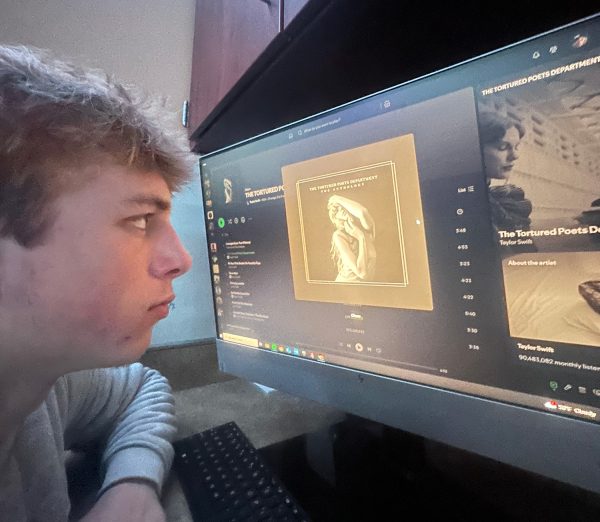The problem with ‘Dahmer – Monster: The Jeffrey Dahmer Story’
There is a right and wrong way to cover sensitive topics
Netflix recently announced that the new Jeffery Dahmer series: “Dahmer – Monster: The Jeffrey Dahmer Story,” was the platform’s second highest viewed English language show ever. The story follows Dahmer, a notorious serial killer and cannibal in the late 1900s. He is known for dismembering and eating his victims.
As far as audiences are concerned, it was a massive hit. The show has an 84% audience score on Rotten Tomatoes, and an 8.2 audience score on IMDb. Critics, however, have found it problematic.
I personally have not watched the show out of personal choice. I had a problem with Netflix making this show without the victims’ families approval, but I will delve into that later.
No topic is too sensitive, too horrible to approach when making a piece of media, yet there is a wrong and right way to do it. So, I want to make it clear that I have no problems with Netflix trying to make this show (besides the lack of respect for the victims). I think they did an excellent job with “Mindhunter,” a show based on the FBI profilers hunting serial killers.
For one, the point-of-view this story is told from is Dahmer’s, with which I normally would have no problem. Yet, if handled poorly it can be a massive issue. I do not want to critique the show for this possibility, however, for I have not watched it. Yet the show, no matter its intent, is popularizing Dahmer.
Netflix’s series is making his name a household one among a new generation and fueling people’s obsession with serial killers. The show is, as the critic consensus on Rotten Tomatoes is putting it, “… seemingly self-aware of the peril in glorifying Jeffrey Dahmer, creator Ryan Murphy’s salacious style nevertheless tilts this horror story into the realm of queasy exploitation.”
I think the show should never have been made. Not because of its subject material, necessarily, but because they never received permission from the people it affected most: the victim’s families. They were against the making of the show for the same reason I am scared of watching it. It was glorifying a man who committed terrible acts and turning a terrible thing that happened to one of their loved ones into a spectacle for millions to see.
This is far from the first adaptation of Dahmer’s story, and it highlights the overlying problem with these media pieces about serial killers: their dangerous portrayal of terrible people and lack of respect for the victims and their families.
Your donation will support the student journalists of Gibson Southern High School. Your contribution will allow us to purchase equipment and cover our annual website hosting costs.

Luke Appman is a senior at Gibson Southern High School. He is a third year writer for "The Southerner" and current editor-in-chief. Appman is captain and...







Chris • Nov 22, 2022 at 3:10 pm
It was an amazing show and also put a spotlight on how cops as usual never do their job.